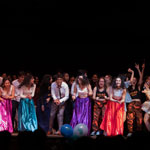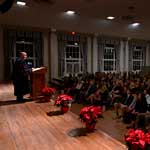
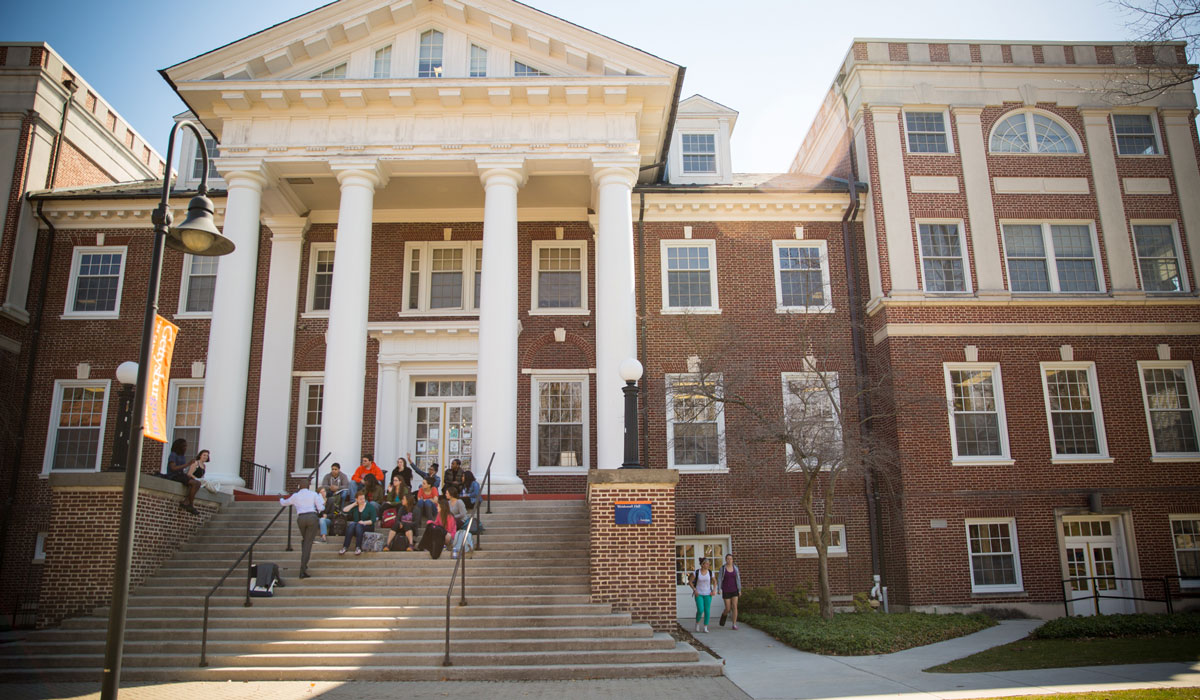
At Gettysburg College, our students are passionate about leaving the world a better place than they found it. This was exemplified during the College’s third annual Peace and Justice Week, which began on the International Day of Peace this year, September 21, and concluded on September 28.
Peace and Justice Week was created by the peace and justice studies program in 2018. Throughout the week-long event, the program strove to raise awareness about injustice and inspire students to take charge and be changemakers in the community.
“One of my aims is to help students to take charge, create ideas, and do all the fantastic work that they want to do. I believe that it is youth and students who always come up with wonderful ideas, who are agents of change, and who are pushing other folks to get out of their comfort zones,” said Africana studies Prof. Hakim Mohandas Amani Williams. Williams is also director of peace and justice studies, a faculty affiliate in education, and advisory council member in international and global studies, public policy, and civil war era studies.
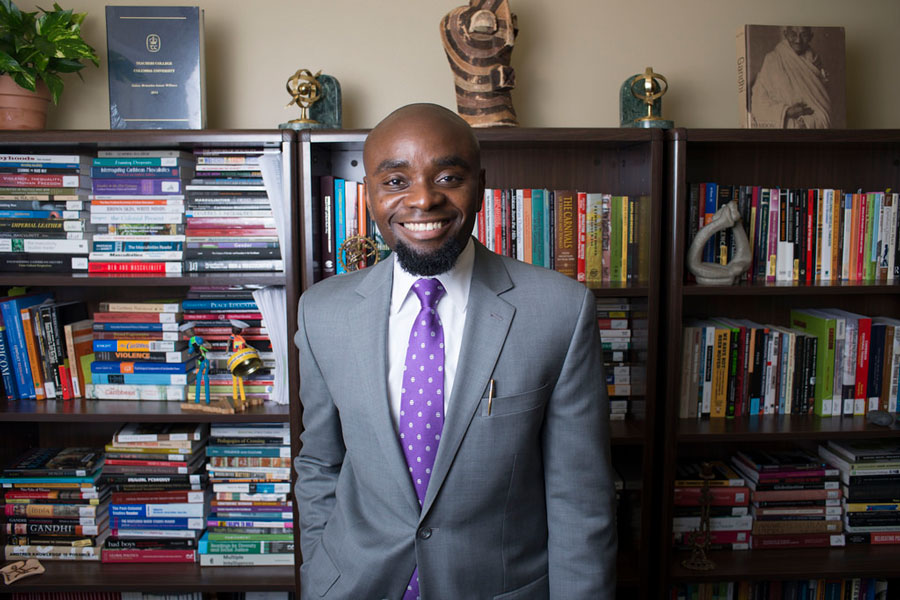
This year, due to the COVID-19 pandemic, Williams and several Peace and Justice Student Council members organized Peace and Justice Week to take place virtually, so that all students had a platform to safely engage in topics of injustice. Specifically, current events such as police brutality and the subsequent rise in the support of the Black Lives Matter movement set a reflective tone for the week’s events.
The virtual events included “Write your Representative for Social Justice,” during which students advocated for political activism by contacting elected officials, and a presentation and discussion with Secretary of Pennsylvania’s Board of Pardons, Brandon Flood, about his work to reform criminal justice policy within the state.
“For me, it’s very valuable and inspirational to hear and see someone [like Brandon Flood] doing great work,” said political science and public policy double major and peace and justice studies minor Jenna Thoretz ’21, who is president of the Peace and Justice Student Council and helped plan and coordinate the event. “It’s reminding people that there is still a lot of work to be done.”
In addition to these virtual events, the team organized a collection of peace and justice-related books on display at the Musselman Library, for students in the residential cohort to view in person, and for all others to view online. Those materials were all dedicated to promoting social justice and the understanding of peace and justice throughout history.
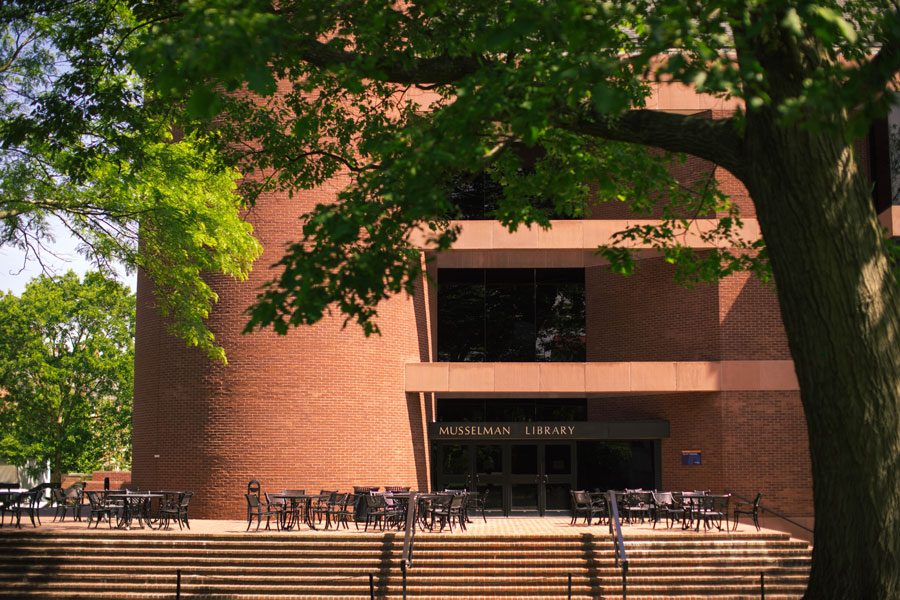
“All of this was possible because of a huge team effort,” said political science and public policy double major and peace and justice studies minor Owen Keenan ’21, who is one of the vice presidents of the Peace and Justice Student Council and a member of the planning committee. “It couldn’t be done without everyone [in the Peace and Justice Student Council], and Prof. Williams has worked tirelessly, putting us in a position for success.”
Thoretz and Keenan were pleased with the turnout for the week’s virtual events. They hope that those in attendance left feeling just as inspired and hopeful as they did.
“Through this experience, I’ve really grown to love the work of community organizing and connecting with other people about issues of social justice and social change,” Thoretz said.
Keenan shared similar sentiments. “I think the best parts about the Peace and Justice Council are great lessons, creativity, and teamwork,” he said.
The peace and justice studies program hopes to hold its fourth annual week in the spring 2021 semester.
“Moving forward, I would love to see more first-years get involved with the Peace and Justice Student Council. It is a good opportunity for them to join a community of smart, compassionate, hardworking students,” Williams said.
By Sokuntheary Heang ’24
Photos by Miranda Harple
Posted: 10/22/20

